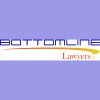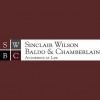Richard D. Steffan is a practicing attorney serving the Sierra Nevada Foothills for more than thirty years. He was a Chapter 7 bankruptcy trustee for the Eastern District of California Federal Bankruptcy Court for many years, administering several thousand cases in addition to his personalized legal practice. The firm provides discreet and professional services in the below areas.
Chief Deputy Public Defender for Placer County with over 100 trials, before both Judges and Juries.
Chief Deputy Public Defender for Placer County with over 100 trials, before both Judges and Juries.
Services
Distribute assets to heirs efficiently without the cost, delay and publicity of probate court.
If the trust is fully funded (all property with record title is transferred to the trust, all other property passes under a beneficiary designation), there should be no need for a probate.
The savings are significant in California which prescribes a statutory fee schedule in probate.
In effect, the living trust converts probate property into non-probate property.
A retirement plan or account if someone other than the estate is designated as a beneficiary.
If the trust is fully funded (all property with record title is transferred to the trust, all other property passes under a beneficiary designation), there should be no need for a probate.
The savings are significant in California which prescribes a statutory fee schedule in probate.
In effect, the living trust converts probate property into non-probate property.
A retirement plan or account if someone other than the estate is designated as a beneficiary.
Chapter 7: A Chapter 7 is like a deal you strike with the federal government - under that deal you agree to limit the assets you can own on the day the bankruptcy is filed.
The assets you can own are actually listed in the law.
These are referred to as "exempt assets" or "exemptions" because they are exempt from seizure for the purpose of paying debt, not even the federal government can take them from you.
On the other side of the coin, if you own assets that are not on the list, they are referred to as "non-exempt" assets and in a Chapter 7 case non-exempt assets are taken from you, liquidated, and the proceeds distributed to your unsecured creditors in a pecking order described in the law and it is the unpaid portion of your unsecured debts that are forgiven or "discharged."
The assets you can own are actually listed in the law.
These are referred to as "exempt assets" or "exemptions" because they are exempt from seizure for the purpose of paying debt, not even the federal government can take them from you.
On the other side of the coin, if you own assets that are not on the list, they are referred to as "non-exempt" assets and in a Chapter 7 case non-exempt assets are taken from you, liquidated, and the proceeds distributed to your unsecured creditors in a pecking order described in the law and it is the unpaid portion of your unsecured debts that are forgiven or "discharged."
Reviews

Be the first to review Steffan, Richard D.
Write a Review

